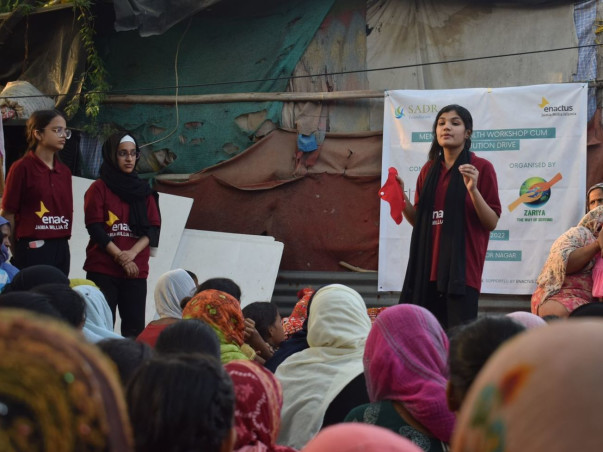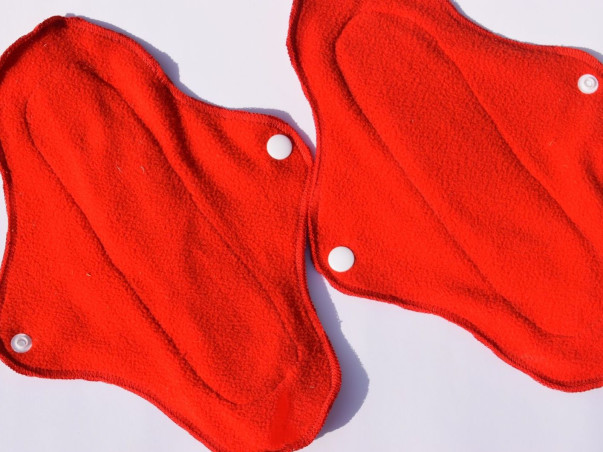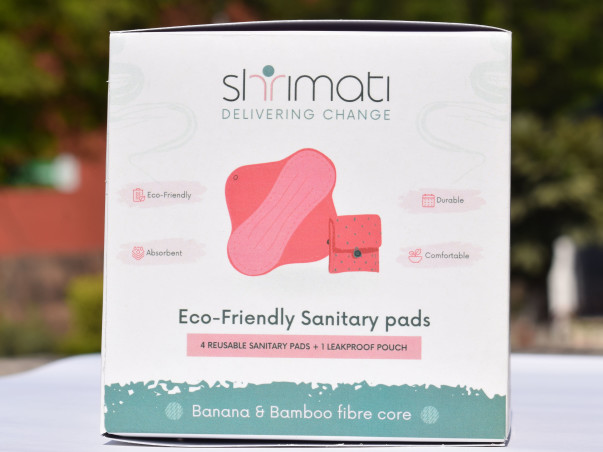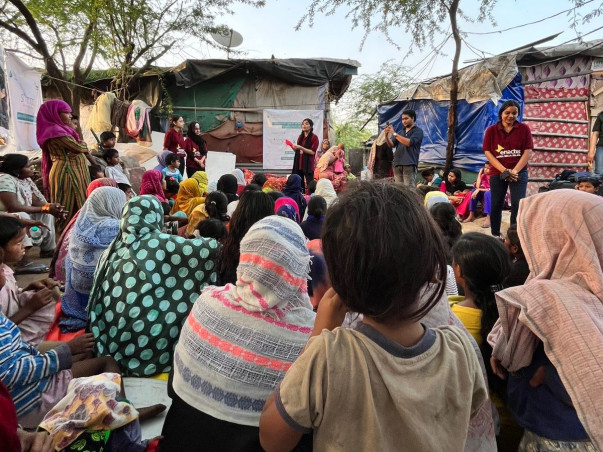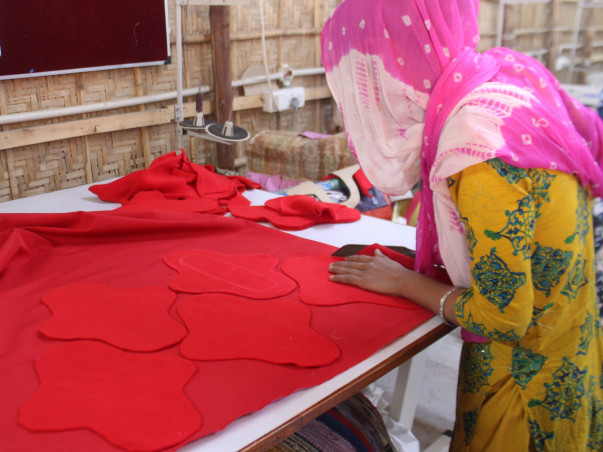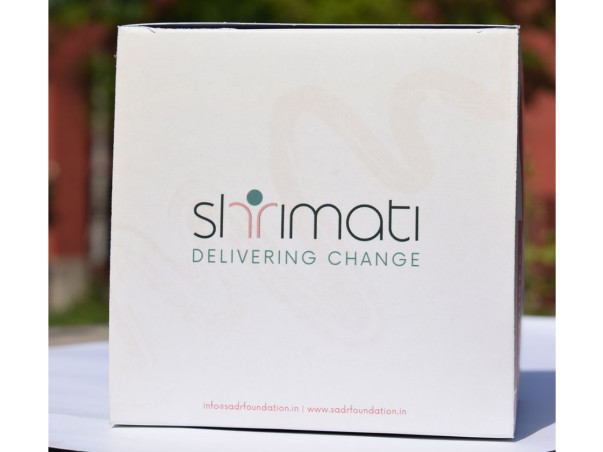Meet the women of Delhi’s Shram Vihar. Most of the faces you see here have never had any formal education and can barely read or write. In a place where the basic needs of survival have to be earned on a daily basis, taking care of their menstrual health is a secondary thought which often gets sidelined. However, their case is not unique. The majority of our country’s women severely lack in the field of menstrual hygiene. Only 36% of women in India have access to sanitary pads, while the rest opt for unhygienic materials due to economic reasons. A 2014 report by Dasra titled ‘Spot On!’ informed that almost 23 million girls in India drop out of school annually because of a lack of menstrual hygiene management facilities, including the availability of sanitary napkins and awareness about menstruation. These are not mere statistics: behind each number is a face, a story, a childhood and countless dreams that remain unfulfilled because of the prevailing taboo around menstruation. To make matters worse, the COVID-19 pandemic aggravated the problems of an already marginalised section of women, who were rendered jobless.
Recognising these problems, Sadr Foundation, in collaboration with Enactus JMI realised the need to devise a suitable solution, which led us to the ideation of Project Shrimati. The cornerstones of our project comprise of the ever-important issues which are women empowerment, menstrual hygiene, sanitary waste disposal and curbing the prevalent single-use plastic.
Through Project Shrimati, we aim to manufacture our own reusable sanitary pads made using banana and bamboo fibre which are economically viable and environment-friendly. The average number of disposable sanitary pads used by a woman in her lifetime is 6120, a number which would be reduced to a mere 136 in the case of reusable Shrimati pads. Even if ten women start using Shrimati’s reusable pads, within two years they can help in reducing an estimated carbon footprint of 106 kg. The Shrimati pads are exclusively produced by underprivileged communities of women residing in Delhi’s Shram Vihar, in order to help them become financially independent. Moreover, since our priority is the empowerment of women financially and socially, our focus would also be on donating our reusable sanitary napkins among underprivileged women and adolescents to ensure their menstrual well-being. So far we have distributed 200 reusable eco-friendly sanitary pads in urban slums in New Delhi.
Since its inception, our project has gained recognition for its innovative approach. We won the 'Confluence on Entrepreneurship' event organised by TATA Institute of Social Sciences, Tuljapur. Shrimati also achieved the 1st runner up prize in the '5th National Social Enterprise Idea Challenge' hosted by Azim Premji University. Thus, to fulfil the true potential of our critically lauded idea aimed at making a positive change in society, Shrimati needs your help.
With production already underway, our target is to introduce our reusable sanitary pads to 1000 women.
A donation of INR 300 will provide a woman with menstrual pads for a year.
To know more about Project Shrimati, our organisation and the impact we aim to create in our society and how you can help us, kindly visit the links below:
https://www.instagram.com/project_shrimati/?utm_medium=copy_link
For further information, please visit our websites:
Recognising these problems, Sadr Foundation, in collaboration with Enactus JMI realised the need to devise a suitable solution, which led us to the ideation of Project Shrimati. The cornerstones of our project comprise of the ever-important issues which are women empowerment, menstrual hygiene, sanitary waste disposal and curbing the prevalent single-use plastic.
Through Project Shrimati, we aim to manufacture our own reusable sanitary pads made using banana and bamboo fibre which are economically viable and environment-friendly. The average number of disposable sanitary pads used by a woman in her lifetime is 6120, a number which would be reduced to a mere 136 in the case of reusable Shrimati pads. Even if ten women start using Shrimati’s reusable pads, within two years they can help in reducing an estimated carbon footprint of 106 kg. The Shrimati pads are exclusively produced by underprivileged communities of women residing in Delhi’s Shram Vihar, in order to help them become financially independent. Moreover, since our priority is the empowerment of women financially and socially, our focus would also be on donating our reusable sanitary napkins among underprivileged women and adolescents to ensure their menstrual well-being. So far we have distributed 200 reusable eco-friendly sanitary pads in urban slums in New Delhi.
Since its inception, our project has gained recognition for its innovative approach. We won the 'Confluence on Entrepreneurship' event organised by TATA Institute of Social Sciences, Tuljapur. Shrimati also achieved the 1st runner up prize in the '5th National Social Enterprise Idea Challenge' hosted by Azim Premji University. Thus, to fulfil the true potential of our critically lauded idea aimed at making a positive change in society, Shrimati needs your help.
With production already underway, our target is to introduce our reusable sanitary pads to 1000 women.
A donation of INR 300 will provide a woman with menstrual pads for a year.
To know more about Project Shrimati, our organisation and the impact we aim to create in our society and how you can help us, kindly visit the links below:
https://www.instagram.com/project_shrimati/?utm_medium=copy_link
For further information, please visit our websites:
Please support our cause!
Thanking you in advance!
